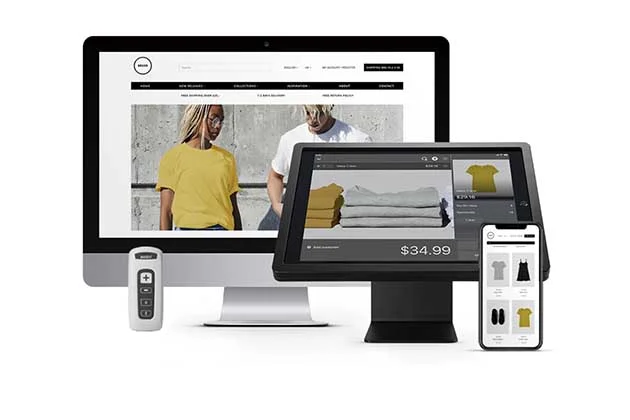Part of creating a successful retail business is ensuring safety and efficient transactions. This helps provide a better customer experience for those who shop with you. Using A POS software for these transactions and other areas within sales, can help your employees streamline their processes too.
A point-of-sale (POS) system is one that’s grown in popularity over the years within the retail industry. It’s also split into other industries like the hospitality industry. But what happens when things go wrong with your POS system?
Like any technology, these systems can go down or encounter errors. This can lead to unwanted stress, it can create a lull in work processes and can even make your business vulnerable to cybersecurity threats.
How do you reduce POS failures in your business? We’ve put together five ingenious ways that will help prevent these problems from occurring. It means your business can thrive, whilst avoiding the pitfalls that often occur when implementing a POS system.
What is a POS system?
Before we dive into the tips, it’s important to understand what a POS system is for those who are at the beginning stages of implementing one. What are point of sales systems? A point-of-sale system manages sales transactions. They also help to generate sales reports, provide inventory management and a range of other features.
There are different types of POS systems out there, whether it’s an electronic POS system to a cloud-based one. With 94% of enterprises using the cloud, there are many businesses opting for cloud-based POS systems. The reason for this is that they provide more efficiency, security and reporting for the business. It’s also perhaps for the benefit of mobile and tablet devices using this software too.
5 ways to reduce POS fails
No software system or digital tool that you use for business is void of any problems. There’s always going to be unexpected issues that crop up but when running a business in an industry like retail, any issues that occur can end up causing hours worth of delays.
For some, it could be a case of not being able to process any sales and that can impact your business seriously if it occurs too frequently. In order to ensure security and reliability in your POS system, here are some issues that are common and how to fix them.
1. Picking the wrong POS system for your business
All retail businesses will require a slightly different POS system based on the support and help they need. This is why choosing the right POS system can take a lot of research and comparison on your part before investing into one.
By picking the wrong POS system, it can be a costly expense to adjust it. In some cases, you might need to remove and replace it with something new. One easy mistake to make when choosing a system is picking one that is unable to adapt and grow with your business. This can be typical in the case of having a new business that hasn’t fully developed.
As a result of this, you may encounter problems with limits on your sales or accounts being frozen due to violations. Choosing a POS system that matches your business needs is a way to avoid this from happening altogether.
Consider if you’re still scaling your business and how many devices you need or have currently. There are questions that need answering and clarifying before parting with any money.
2. Vendors posing a risk to your data
Cybersecurity is a huge cause for concern when it comes to businesses of all industry-types and sizes. 24% of cyberattacks target retailers and therefore it’s necessary to ensure your POS system’s security is up to scratch.
Many businesses when it comes to POS systems will use vendors who may manage various parts of the system, whether that’s the devices to the entire network. There are vendors who might not be doing enough to prevent hacks or risks to their own cybersecurity and that ends up impacting you indirectly.
Cybersecurity sleuths are capitalizing on this and so in order to avoid any cyberattacks, it’s worth vetting any vendors you work with. A good vendor risk management program can help ensure attention is focused on reducing the threat of cyber attacks too.
Check that the vendor has the right compliance towards regulations both nationally and internationally. Consider how long they’ve been in business and any reviews or feedback that has been left online by previous or current customers.
3. Reporting and sales data are inaccurate
A digital POS system can breathe new life into a retail business when it comes to issuing detailed reporting and sales data with just a click of a button. However, whilst this may prove effective for the most part, things can go wrong.
You may notice that the data being collected doesn’t add up or there’s major gaps within your reports. A POS system that’s inaccurate is a major flaw and can cause more headaches for you, your employees and your customers.
Even though you can get value by choosing a cheaper system, you don’t want to sacrifice on quality and accuracy in the sales data and reporting features.
4. Not having a backup plan
When you invest in a POS system, you want it to be your central point for all things sales related. However, there are cases where a POS system can go down and there’s no backup plan in place. A temporary situation, regardless of how basic it is, should be set in stone should anything go wrong.
Even by doing due diligence in picking a great system, issues like WiFi signals can be a common problem for many businesses. It’s a problem that’s also usually out of your control until the network providers get everything up and running again.
It’s useful to know that web-based systems won’t process transactions with no WiFi signal, whilst cloud-based systems can queue transactions in offline mode. To fix this potential problem, get a backup hotspot connection in place so that you can continue taking sales. You may even want a backup POS system that’s a basic or free system.
5. There’s not enough software support
With any type of software that you implement within the business, a degree of software support is needed. It often depends on the package or subscription you choose as to how much customer support you do get.
However, with some software support, you may end up getting very little to no support at all. This can prove challenging when you encounter problems both in and outside working hours. Ideally, a 24/7 support line or ticketing system is worth having but when that’s not available, you should have ample IT support internally.
This means having an internal knowledge regarding the system and how to tackle the issues that can crop up despite trying to avoid them.
Tips for implementing a POS system successfully
With awareness of common POS issues, it can help navigate any potential teething problems when implementing a system for the first time. Here are some tips for implementing a POS system successfully.
Ensure the system meets all your needs as a business
Before you go randomly picking a POS system that’s recommended to you, check it meets all your needs. The last thing you want is one that won’t cater to your business requirements now, nevermind in the future too as your business develops. You want a system that can adapt.
Keep your staff actively involved
To ensure your POS operates efficiently, it’s important to provide enough training for your staff who’ll be using it. It’s beneficial for all employees who’ll use the system, to get a detailed knowledge of how it works. Any gaps in their knowledge will require more training to avoid any mistakes being made through human error.
Set up security measures
In terms of security, you want to ensure that your POS system and the vendors providing the units, network, etc. don’t leave your business vulnerable. Having the right security protocols in place is essential. Clarify with your vendors what security procedures they have in place and fill in any gaps to your security where needed.
Troubleshoot any issues, fix and find preventions
There are going to be problems that you simply can’t prevent. However, when you encounter any issue, troubleshoot it immediately, fix it and try to prevent it from happening again. It may help to have a handbook of common problems that occur so that all staff know how to handle it.
Reduce POS fails for better business efficiency
Reducing your POS fails will lead to better business efficiency and it’ll keep your customers happy. Giving them the best customer experience is essential so that they return to your business time and time again.
Fewer work or system problems in the business will also benefit your employee happiness too. With that in mind, do your research and ensure the POS system you choose is the right fit for your business.
Author Bio: Natalie Redman (LinkedIn)
Email - natalieannredman92@gmail.com
Freelance writer for many clients across multiple industries. Natalie has two years of copywriting experience. Natalie has a wide range of experience copywriting for web pages for businesses across many industries. She’s also an owner of two blog websites and a Youtube content creator.














